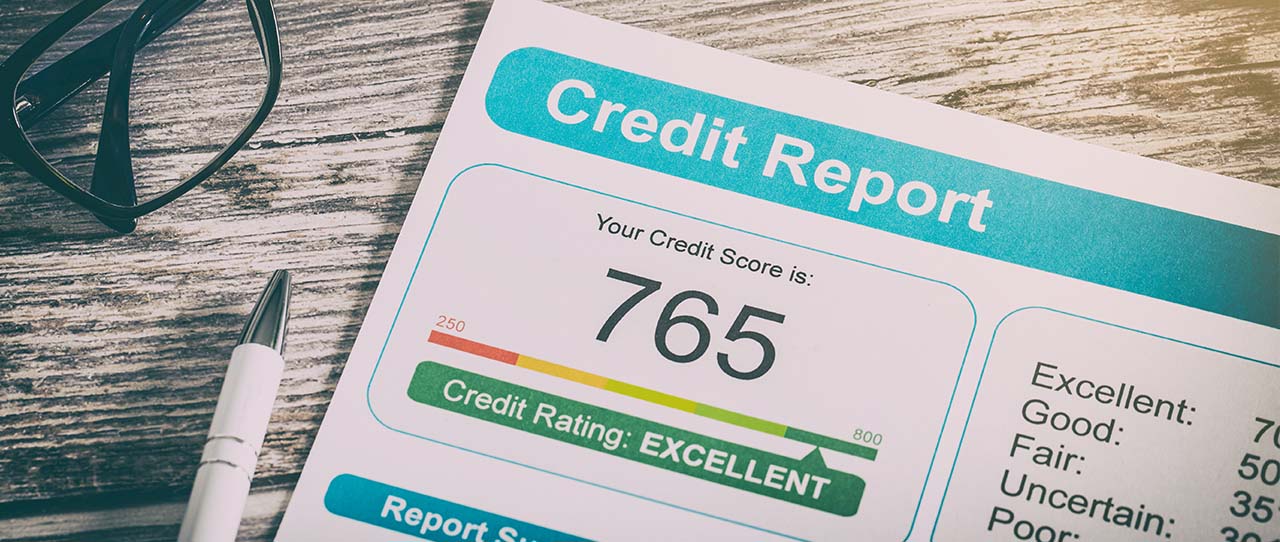

Posted: 2019-09-05 | Author: April Nye
When you apply for a home mortgage, one of the major factors that will help determine the interest rate you will pay is your credit score. This is the score that is generated using data that is kept by the credit reporting agencies (based on your financial history). Your credit score is determined by your payment history, amount of available credit you utilize, length of credit history, and any negative data; such as late payments, collections, foreclosures, and bankruptcies.

Two of the credit reporting agencies issue their own scores, these are Experian and Equifax. However, the score that is most widely used in the mortgage industry is the Fair Isaac and Company (FICO) score. FICO scores range from 300 to 850 based on the creditworthiness of the borrower. The higher your score, the more mortgage options you will have a chance of being approved for, and the lower your interest rates will be.
How Much Does my Credit Score Matter to Lenders?
The short answer is, a lot. But how much it matters depends on various factors, such as which types of mortgage programs you are applying for and the range your score currently falls into. It is also important to note that, although credit score is important, it is not the only factor in determining your interest rate. Lenders will also look at your debt-to-income (DTI) ratio, the amount of money you are putting down on the home, your net worth, how much money you have in the bank, and many others.
At the end of the day, it all comes down to risk. Based on your entire financial picture, if a lender considers you a low risk, you will be rewarded with a lower interest rate. If, however, there are some blemishes in your financial history that heighten the risk a lender is taking to borrow money to you, then you will have to pay for that with a higher rate.
What Credit Score Do I Need to Get the Lowest Mortgage Rate?
For a conventional mortgage, you should be shooting for a FICO score of 760 or higher. Once you are in this range, you will get an excellent interest rate. Every 20 points or so higher than 760, there might be a tiny drop in the rate, but at that point, the difference is negligible. A score of 720 or above is also considered very good from a conventional lender’s standpoint. You might see a small bump in the rate verses someone with a score of 760, but again, it will not be a significant difference.
When a score drops below 700, this is when you start seeing a bigger difference in the mortgage rate you will be offered. Here is an example. Suppose we have two borrowers who are both purchasing $250,000 homes with the same down payment on 30-year, fixed-rate mortgages. One borrower has a FICO score of 780, while the other has a score of 680. The borrower with the 680 score might pay about a .5% higher rate, which would translate into somewhere between $50 and $75 more per month. Over the life of the loan, that would mean paying between $18,000 and $27,000 more in interest.
For loans that are backed by the government, such as FHA, VA, and U.S. Department of Agriculture loans, the rules are different and the requirements for more lenient. With these types of loans, a credit score of 700 or above is usually sufficient to get you the best mortgage rates. Perhaps more importantly, government-backed loans require lower credit scores to qualify for them at all than with private lenders. In some instances, you may even be able to get into an FHA loan with a credit score as low as 500.
What Can I Do if My Credit Score is Too Low?
If your credit score is not high enough to qualify for a mortgage, this does not necessarily mean you have to give up on your goal of owning a home. As mentioned in the last section, there are programs that can get you into a home even with a credit score as low as 500, although it is much more ideal to have a score of at least 620 or above.
Aside from that, you should take proactive steps to raise your credit score. Some important steps to take include:
If it is going to take a while to clean up your credit, one way to get into a home faster is to find someone with good credit who is willing to co-sign for you. Having a creditworthy coborrower can get you access to more mortgage programs and allow you to qualify for a better interest rate.
Speak with a Local Lending Expert to Discuss your Credit Score and Mortgage Options
If you have additional questions about how your credit score affects mortgage rates and your ability to qualify for a loan, contact a local lending specialist. A local expert will be able to sit down with you to discuss your specific situation and the options that are available to you.

